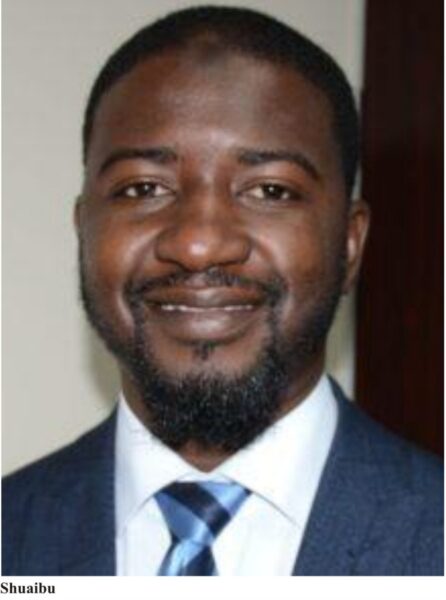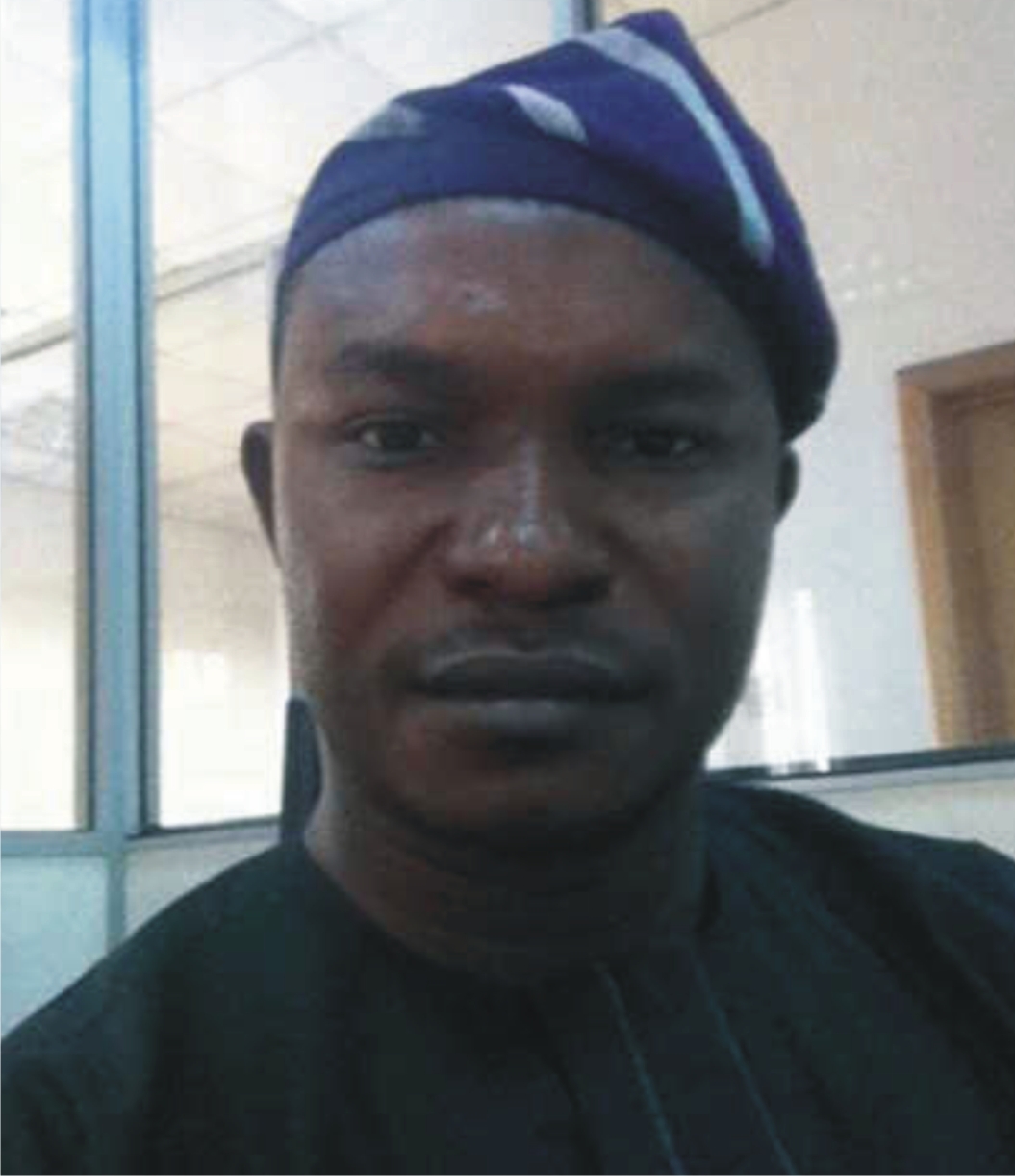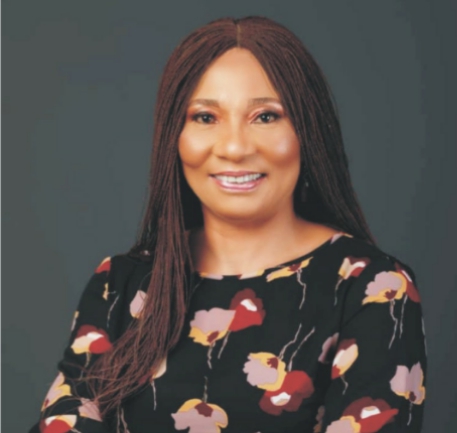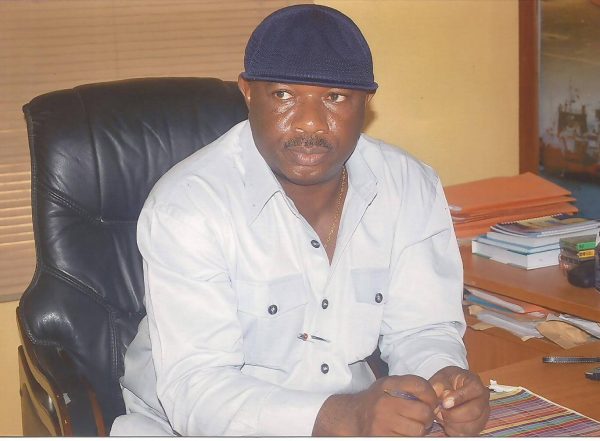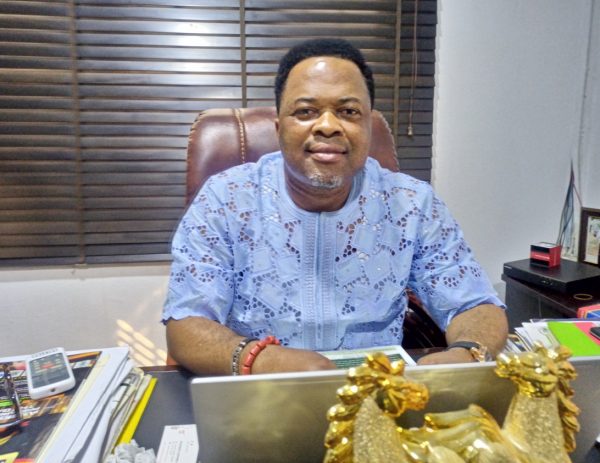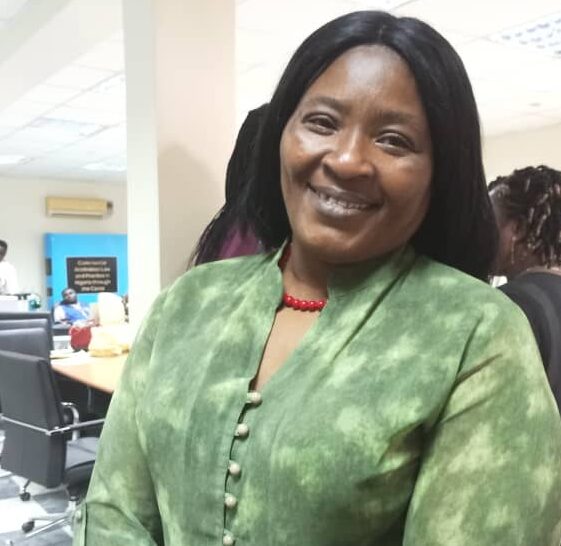Human Attitude Solution To Carbon Emission Crisis – Usman Shuaibu
Mr.Usman Shuaibu is the immediate past National Chairman of Young Ship Nigeria,an Association of young professionals in the maritime industry committed to the growth and development of young people in the industry and the maritime sector as well. He is also an Associate Member of Chartered Institute of Logistics and Transport ( CILT) and also a staff of Nigerian Maritime Administration and Safety Agency(NIMASA).
Shuaibu in this interview with MMS Plus, outlined ways of ensuring the country achieves zero carbon emission for shipping by 2050 in line with the policy of the International Maritime Organization (IMO).One of the ways ,he says, is attitudinal change by the players in the industry. He outlines various ways Nigeria and indeed African nations can explore to eke- out revenue from the process. Find out in this interview how ready Nigeria is to adopt this new innovation. The Net Zero Carbon Emissions projection,is the technology available now or is it still shrouded in theory?
What is the health implications of carbon emissions to human life and animal life? What is the future port system and future fuel going to look like?
What is the role of government,operators and other stakeholders in ensuring the realization of Zero Carbon Emissions by 2050? All the answers are in this interview. Shuaibu spoke with Frank Odinukaeze and Genevieve Aningo.Enjoy it.
Global Shipping accounts for about 3% of the World’s annual carbon emissions and pressure is intensifying on the industry to reduce that pollution to contribute to the international goal of net zero carbon emissions by 2050.Do you see Nigeria shipping industry meeting up with this projection by 2050?
Thank you very much for the opportunity to let some talks to the global direction of green house emissions .As a way of background,it is important for us to appreciate that shipping industry is one of the most heavily regulated industry, among all the sectors. And having supported a lot of social and economic activities for mankind, and this is evident, if we look at the projection of international trade, where 90% or 80 %, is being accounted for global shipping on the international sea.
Now the implication of that is that ships are bunkering fuels and are in the bunkering process. There is a combustion system that takes place as the speed of the ship is moving towards the distance. So it emits a black smoke into the atmosphere and these are called the sulphide. These are things that affect humans that are fixed in ecology. Humans receive it in the form of cardiovascular disease, bronchitis and increase in acidification. We see a lot of issues to do with human health. These are things that usually come in abstract but they are very tangible when we look at the long-term projections. Now, if you look at the trends, in 2018, IMO ,more in the spirit of complementing the United Nations Sustainable Development Goals(SDGs), entered Paris Agreement to support the implementation of Paris Accord which is climate change and the sustainable development goal13 talks about ending climate change. Goal 14 talks about conserving the ocean based resources for sustainability. Now, the implication is to reduce the level of emission within the shipping industry. That brings a lot of difficulty among ship owners and member states because their emission vary between one region to another and country to country. The most advanced countries have a high level of industrialization. So their emissions levels are high. In developing countries like ours in Nigeria, we are just an emerging economy; industries are still at a stage. In most cases, it is more of agriculture, raw materials are being exported within the country. So the level of emissions is less compared to theirs.
So the appetite for complying with regulations becomes less because of some externalities. Now, looking at the projection, the IMO , had an instrument that regulates its member states, one of the instrument, is that no member state shall have a preparation statement treatments, which means, once a convention is being adhered to and agreed by a consensus, it means all member states must comply with our equation. So by that application, it means no member state is exempted from complying with IMO. So now, the green house gases are things that IMO adopted in 2018 to reduce the level of emissions and carbon intensity(CI) within the shipping industry. One of the major things, we will look at are: The ship designs, we look at the material in the design of ship and try to improve on them. And one of the goals is to achieve the Energy Efficiency Design Index (EEDI) which is an index that every new ship that is going to be built today must be in conformity with EEDI specifications. For the existing ships, which is more applicable to us in Nigeria, the ship must have Ship Energy Efficiency ( SEE)management plan, which is SERP, So the SERP has part 1 and part 2 , these are mandatory and the other kind, of a guideline. So ship owners have to comply with such specifications, bearing in mind, the cost implications and some of these issues.
Now looking at Nigeria in terms of preparation, how well-prepared is Nigeria?
Now the focal agency for championing this kind of initiative is NIMASA. It is expected that NIMASA will raise awareness among shipping communities in terms of the new conventions, and requirements ,bearing in mind, most of the ship owners are not from Nigeria. Most of the ocean-going vessels are owned by Denmark, by Dutch, and other foreign countries.
So, they are already complying with their local laws in any case. So Maerksline, Dutch companies have been operating in most oceans. Most of the operations that they do in Nigeria, they make sure it complies with some of the regulations. In a way, it’s easier for Nigeria but we don’t want a situation where Nigeria becomes a dumping ground. So we have to be stringent in enforcement to ensure that vessels coming into our water are set up with these requirements and this is something that NIMASA, putting all the transitional issues to make sure they adequately follow the kind of inspection as necessary. I’m sure that those vessels are actually complying.
Another thing to do is to domesticate the law, if you don’t domesticate the law it means you cannot operate the intricacies of the industry which is still a challenge that NIMASA is working together to achieve that.
The bulk of emissions happen within the port area. So there has to be a synergy between the NIMASA, NPA and other regulatory agencies that are saddled with environmental issues like NODSRA, Ministry of Environment to work in synergy to be able to achieve a solution. In terms of also preparing this, we can see that there is also light at the end of the tunnel , the ministry of environment has recently obtained the Emission Trading Scheme( ETS) for Nigeria and as part of that NIMASA is also working to develop a Carbon Emission Trading Scheme (CETS) which is aimed at complementing existing regulations to achieve that need. I know that NIMASA has been working to interface with NNPC and other refineries of energy products to make sure that the products meet up with the requirements that we are talking about and make it more stringent to some of those societies and also make sure that no one is left behind. Like I said, there is an operational issue, there’s a financial issue and there’s a logistics issue. So imagine what we’re talking about, you are complying with the three options available.
All these options are issues that organizations have to work with member countries to address.
The IMO set a target of halving emissions from shipping by 2050 from 2008 levels .But it failed to set an interim target during the Maritime Environmental Projection Committee’s 76 (MECP76). Therefore, there is consideration by IMO,to ask governments to pass legislation that will impose emissions Act on the shipping industry either through direct mandate or through taxes.
How effective can this measure be? And what are the check and balances mechanisms that can take care of this issue?
In respect to checks and balances relating to emissions, we have attempted to build a market based region;it didn’t succeed.
Bearing in mind the social cost of it, you have to do a trade up in the three fields, which are, environmental, social and economic needs . This is a challenge that Nigeria and many other countries have dabbled at. What the industry is talking about is not yet available. The solution is human attitude. The whole thing is about thinking how you operate shipping and how you conduct your business. If we use a lot of man labour, using lots of machines to do things, you have to look at optimizations, you look at how to reduce that. So there are lots of innovative measures that would have to come in place. We are talking about digitalization, it is one of our drivers. Decarbonization too. So, I think Africa has a brighter future when we look at opportunities, in the renewable energy. This appears in mass but they are yet to be commercially viable. So the current government needs to start looking at, what are those future Fuels because they are not available. Look at future fuels that we can be able to promote within the industry and attract foreign investors to invest into some of these products as the next alternative. The fossil fuel is what we all depend on. But we have sunlight, wind energy, ammonia, methanol a lot of biomass not commercially available. Only the research and investments with the right investment to the right environment, you can be able to harness those.
So the sooner we realize that we need more attention on research and development, in exploring new fuels, new renewables, the brighter. There is a lot of consortium and collaborations in greener fields; research is not going to be solely for one organization. It’s something we need to have as a country. Research must come with a strategy; you have the PTDF, all the oil and gas trading sectors must support in geology, excavation and exploring. We don’t have such in maritime fields. If we have a lot of that in the industry, we can come together to create something like an incubation lab for the Eco-vision of project and effectiveness, NIMASA can champion that, NPA, and other organizations. It solely doesn’t rely on one organization, anybody can do it.
Talking about carbon intensity( CI) reduction by ships ,how do we address carbon emissions from trucks that carry goods from the port, vehicles that come into the port,and other mechanical devices involved in ship operations in the port?
In my earlier presentation, I have discussed about ship designs and about fuels. There are two things I mentioned-one has to do with operational optimization, when you are reducing emissions, and other various areas. From, the initial GSG study, that was conducted in 2008, another one in 2012 and the last in 2013,It has been discovered that most of the emissions from ships happen in the port areas. Look at it, when a ship arrives in the port area, it has to wait for mooring operations and auxiliaries and they are just burning fuels. The people affected are the seafarers and the coastal communities and port facilities. Innovative ideas approach shows you have to do ship to port interface. Now imagine you have a more advanced ship coming to your port, yet you don’t have enough receptions. It means you are not working in sync. So the port authorities need to rethink their culture in trying to envisage the port of the future. You don’t need to think of Green port, but try to envisage the Future. See what kind of traffic up in? What types of ships, they all come with port planning , forecasting and trying to understand what is the number of ships, am I expecting to arrive in Nigeria port? What are their categories? What facilities do I have to accommodate them? So everything starts with planning. If you look at it, you have to also have seamless operations in terms of gate operations, cranes operations. Most ports today are going automated and less human activities but they come with a cost. If a developing country like Nigeria wants to take the bull by the horn in terms of smart ports, we should look at how we plan our logistics and implement it so that as ships arrive, it’s relieved. Everything needs to be in sync; the port, gate operations, so no one accesses the ports if he does not have business to do in the port.
Congestion is an issue that most countries are facing, and if you look at it, it is not more of infrastructural problem but attitudinal problem. Truck drivers come and pack anywhere they want because there are no laws and penalties. So, if they are not sanctioned for their behavior then there is no regulations. We have to designate a port area. Let’s say from breweries down to the main Apapa would have been a port area, which means you have less human interactions, less activities so the port can be civilized. A very important instrument that we can use to regulate this is freight forwarding and we pay less attention to it. The freight forwarder determines where the cargo goes,determines the type of ship that comes into your port. They are the aggregators of the economy, they are primary port selectors. The moment you can reorganize your freight forwarding industry so that they can bring some digital services, I don’t need to get to custom to get a duty. By click of a button, the duty should be ready; I should be ready to pay to the port, terminal ,shipping lines and others. I don’t need to see anybody and these things can work. It is just an attitudinal change,that we need to rethink how we operate and do things. We can also designate. It’s not every type of cargo that should be carried by truck going to the city. Certain goods meant for Lagos, should not be evacuated at the port environment, and they should be a place where such can take place, which means you have lesser of those trucks or different trucks not as heavy duty as other ones, easy to use and upload cargo. If you look at also the issues with container too, causing traffic. It is everywhere, but what traffic needs is flow. If there is a flow of traffic, it makes everything seamless. We have a lot of people doing unnecessary checks at the ports. In policy making we need to envisage all these issues that are not captured in data and see how we can harmonise because we need all of them in order to arrest the issues.
How ready will Nigeria be when this technology comes in place?
Everything starts with a master plan. First, is to spell out a policy in the maritime sector, what you care to achieve. It’s lack of vision and this is something that can prepare our readiness and plan to ensure that we have a cleaner secured green environment.
In terms of readiness, we need to change the way we work, and put more efforts and know the better we clean the environment,the better for our collective eco -system.

